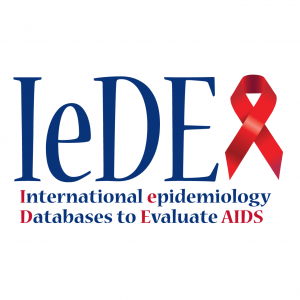Nearly all countries in sub-Saharan Africa (SSA) have adopted national polices for universal HIV treatment, regardless of CD4 cell count or clinical stage. Evidence to date from SSA suggests that, once linked to care, timely ART initiation with retention and viral suppression is the norm. However, ART initiation in SSA usually occurs late in the course of infection, driving up mortality and new infection rates. With 10.3 million people untreated and a projected 1.2M new infections per year in SSA, the universal treatment era presents strategic opportunities for health systems to substantially reduce AIDS-related mortality and HIV incidence. This special issue of Journal of Virus Eradication, with contributing authors from the African regions of the IeDEA Consortium and the World Health Organization (WHO), contains an editorial and eight articles focused on issues critical to ensuring the success and impact of universal treatment implementation in SSA.
Volume 4, Supplement 2
Research Priorities for Achieving Universal HIV Treatment in sub-Saharan Africa
Guest Editors: Denis Nash, Marcel Yotebieng, Annette Sohn
Editorial
Treating all people with living with HIV in sub-Saharan Africa: a new era calling for new approaches
Denis Nash, Marcel Yotebieng, Annette Sohn
Reviews
The contribution of observational studies in supporting the WHO ‘treat all’ recommendation for HIV/AIDS
Nathan Ford, Martina Penazzato, Marco Vitoria, Meg Doherty, Mary-Ann Davies, Elizabeth Zaniewski, Olga Tymejczyk, Matthias Egger, Denis Nash
IeDEA-WHO Research-Policy Collaboration: contributing real-world evidence to HIV progress reporting and guideline development
Elizabeth Zaniewski, Olga Tymejczyk, Azar Kariminia, Sophie Desmonde, Valériane Leroy, Nathan Ford, Annette Sohn, Denis Nash, Marcel Yotebieng, Morna Cornell, Keri N Althoff, Peter F Rebeiro, Matthias Egger
Mental health and HIV: research priorities related to the implementation and scale up of ‘treat all’ in sub-Saharan Africa
Angela Parcesepe, Charlotte Bernard, Robert Agler, Jeremy Ross, Marcel Yotebieng, Judith Bass, Edith Kwobah, Adebola Adedimeji, Jospeh Goulet, Keri N Althoff
Substance use and universal access to HIV testing and treatment in sub-Saharan Africa: implications and research priorities
Kathryn E Lancaster, Angela Hetrick, Antoine Jaquet, Adebola Adedimeji, Lukoye Atwoli, Donn J Colby, Angel M Mayor, Angela Parcesepe, Jennifer Syvertsen
Achieving UNAIDS 90-90-90 targets for pregnant and postpartum women in sub-Saharan Africa: progress, gaps and research needs
Lisa Abuogi, John M Humphrey, Christian Mpody, Marcel Yotebieng, Pamela M Murnane, Kate Clouse, Lindah Otieno, Craig R Cohen, Kara Wools-Kaloustian
Traversing the cascade: urgent research priorities for implementing the ‘treat all’ strategy for children and adolescents living with HIV in sub-Saharan Africa
Leslie A Enane, Mary-Ann Davies, Valériane Leroy, Andrew Edmonds, Edith Apondi, Adebola Adedimeji, Rachel C Vreeman
Mathematical modelling to inform ‘treat all’ implementation in sub-Saharan Africa: a scoping review
April D Kimmel, Rose S Bono, Olivia Keiser, Jean D Sinayobye, Janne Estill, Deo Mujwara, Olga Tymejczyk, Denis Nash
HIV drug resistance in sub-Saharan Africa: public health questions and the potential role of real-world data and mathematical modelling
Reneé de Waal, Richard Lessells, Anthony Hauser, Roger Kouyos, Mary-Ann Davies, Matthias Egger, Gilles Wandeler, for IeDEA Southern Africa
>> Download the full issue here
Funding
This special issue of the Journal of Virus Eradication was supported by Central Africa IeDEA (U01AI096299). The work resulting in the articles was supported by the African regions of the IeDEA Consortium, including Central Africa IeDEA (U01AI096299), IeDEA Western Africa (U01AI069919), IeDEA Southern Africa (U01AI069924), and IeDEA Eastern Africa (U01AI069911). Support was also provided by an NIH conference grant (R13AI134393) and the CUNY Institute for Implementation Science in Population Health.

